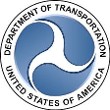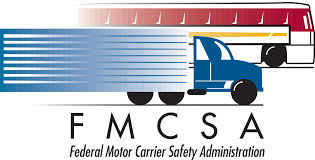
Understanding Auto Transport Brokers vs Direct Carriers: Making the Right Choice for Your Vehicle
When it comes to shipping your vehicle across the country, you’ll quickly discover that the auto transport industry operates through two primary business models: brokers and direct carriers. Understanding the fundamental differences between these approaches is crucial for making an informed decision that aligns with your specific needs, budget, and timeline.
What Are Auto Transport Brokers?
Auto transport brokers serve as intermediaries in the vehicle shipping process. They don’t own trucks or employ drivers directly. Instead, they maintain extensive networks of licensed carriers and act as matchmakers between customers and transportation companies. When you hire a broker, they handle the logistics of finding an available carrier, negotiating rates, and coordinating the pickup and delivery of your vehicle.
Think of brokers as the travel agents of the auto transport world. Just as a travel agent has access to multiple airlines and can help you find the best flight options, auto transport brokers have relationships with numerous carriers and can shop around for the most suitable match for your specific shipment.
What Are Direct Carriers?
Direct carriers, on the other hand, are transportation companies that own their own fleet of trucks and employ their own drivers. When you work with a direct carrier, you’re dealing directly with the company that will physically transport your vehicle. There’s no middleman involved in the transaction or communication process.
Direct carriers typically specialize in specific routes or regions where they have established operations. They may focus on particular types of vehicles, such as luxury cars, motorcycles, or commercial vehicles, allowing them to develop specialized expertise and equipment.
The Broker Advantage: Network and Convenience
One of the most significant advantages of working with a reputable auto transport broker is their extensive network. Established brokers have relationships with hundreds or even thousands of carriers across the country. This vast network means they can often find transportation options for even the most challenging routes or tight timelines.
Brokers also handle much of the heavy lifting when it comes to research and vetting. They verify carrier credentials, insurance coverage, and safety records, saving you the time and effort of conducting this due diligence yourself. For customers who prefer a more hands-off approach, brokers provide a single point of contact throughout the entire shipping process.
Additionally, brokers often have more flexibility in pricing. Because they work with multiple carriers, they can shop around for competitive rates and may be able to secure better deals than what individual carriers might offer directly to consumers.
The Direct Carrier Advantage: Control and Transparency
Working directly with a carrier offers several compelling benefits, particularly for customers who value transparency and direct communication. When you hire a direct carrier, you know exactly who will be handling your vehicle, what truck it will be loaded onto, and who the driver will be.
Direct carriers often provide more personalized service since they’re not juggling relationships with multiple brokers and can focus entirely on their direct customers. This can result in better communication, more accurate tracking updates, and a higher level of accountability throughout the transport process.
From a cost perspective, eliminating the middleman can sometimes result in lower overall prices, though this isn’t always the case. Direct carriers may also offer more flexibility in terms of pickup and delivery scheduling since they don’t need to coordinate through a broker.
Potential Drawbacks to Consider
While brokers offer convenience and network access, there are potential downsides to consider. Some less reputable brokers may engage in “lowball” pricing, quoting artificially low rates to secure your business only to later claim that carriers are demanding higher prices. This practice can lead to frustration and unexpected costs.
Additionally, working through a broker means you have less direct control over the selection of the actual carrier. While good brokers vet their network partners, you’re ultimately relying on their judgment rather than making the choice yourself.
Direct carriers, while offering more control, may have limitations in terms of route coverage and availability. If a direct carrier doesn’t regularly service your specific route, you might face longer wait times or higher costs. Their smaller scale compared to broker networks can also mean fewer options if scheduling conflicts arise.
Making the Right Choice for Your Situation
The decision between a broker and direct carrier should be based on your specific circumstances and priorities. Consider working with a broker if you’re shipping to or from less common routes, need maximum flexibility in carrier options, or prefer having a single point of contact manage the entire process.
Direct carriers may be the better choice if you’re shipping along major routes that they regularly service, want maximum transparency and control over the process, or have specific requirements that benefit from specialized expertise.
Regardless of which option you choose, the most important factor is selecting a reputable, licensed, and properly insured company. Verify that brokers are registered with the Federal Motor Carrier Safety Administration (FMCSA) and that carriers have appropriate motor carrier authority and insurance coverage.
Questions to Ask Before Making Your Decision
Before committing to either a broker or direct carrier, ask about their experience with your specific type of vehicle and route. Inquire about their insurance coverage, claims process, and what happens if there are delays or issues during transport. Request references from recent customers and don’t hesitate to verify their licensing and safety records through the FMCSA database.
Understanding the total cost structure is also crucial. Ask for a detailed breakdown of all fees and confirm whether the quoted price is guaranteed or subject to change. Be wary of quotes that seem significantly lower than others, as this often indicates potential hidden costs or unreliable service.
The Bottom Line
Both brokers and direct carriers can provide excellent service when you choose reputable companies that prioritize customer satisfaction and vehicle safety. The key is understanding what each model offers and selecting the option that best aligns with your specific needs, timeline, and budget.
Remember that the cheapest option isn’t always the best value. Focus on finding a company with a proven track record, proper licensing and insurance, and a commitment to transparent communication throughout the transport process. Whether you choose a broker or direct carrier, investing time in research upfront will pay dividends in ensuring a smooth, stress-free auto transport experience.
The Car Carriage is committed to helping customers navigate the complexities of vehicle transportation with expert guidance and reliable service. Contact us today by calling 855-723-3200 to discuss your auto transport needs and discover how we can help make your vehicle shipping experience seamless and worry-free.








